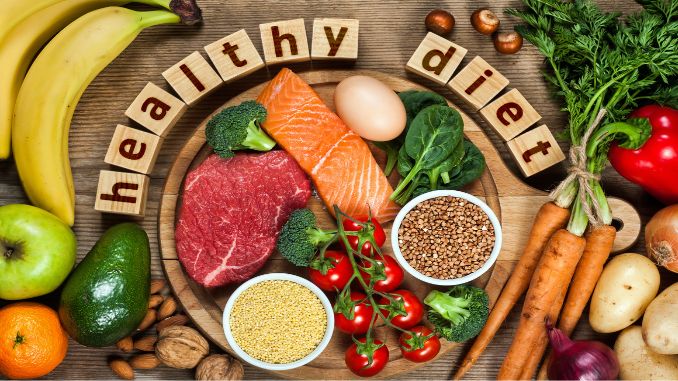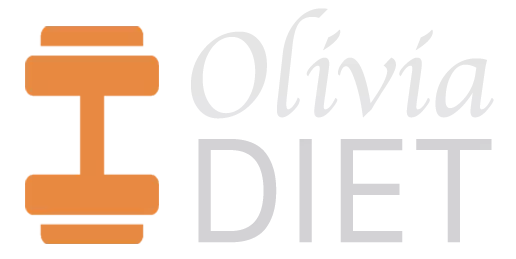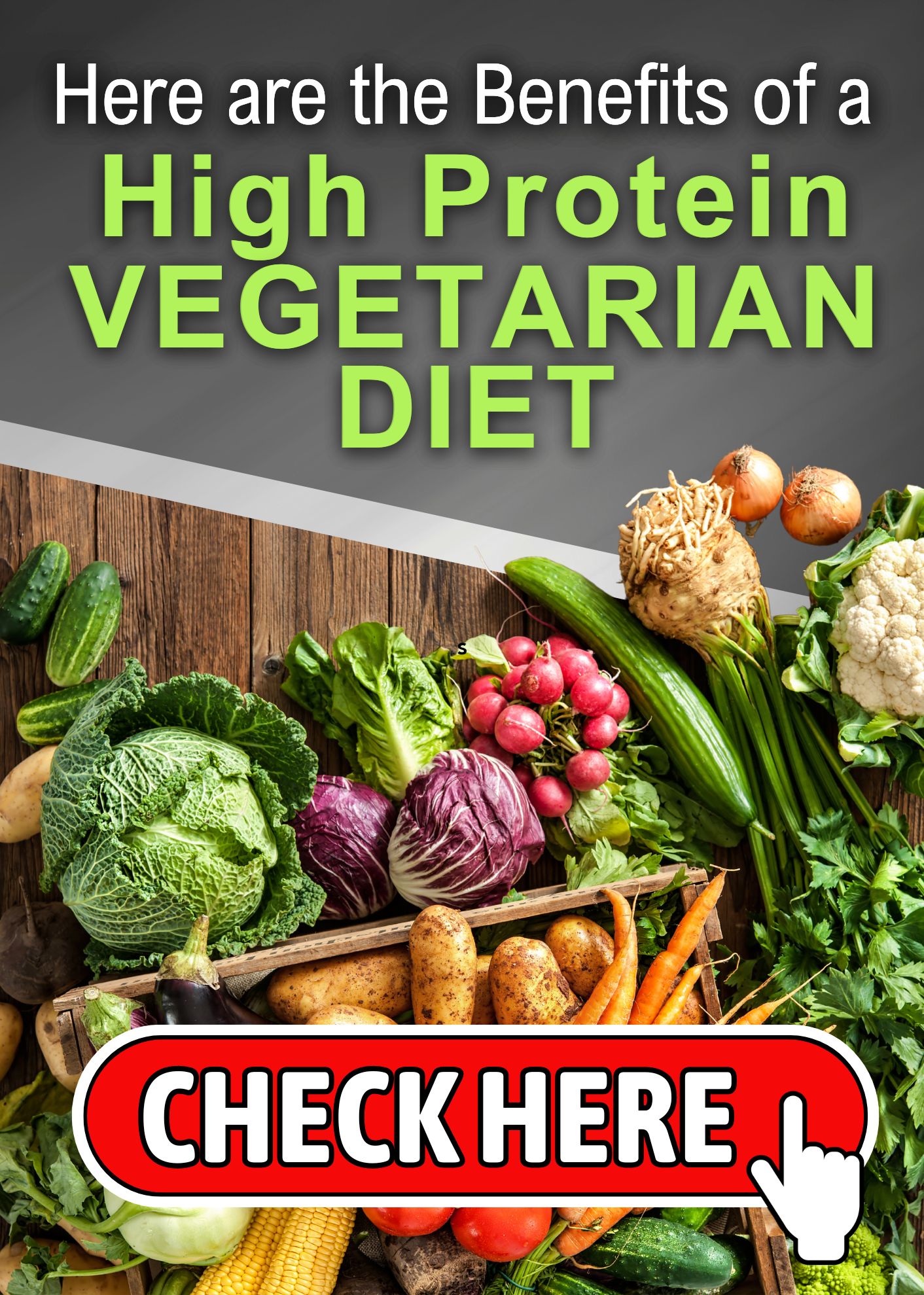Conquer PCOS with Nutrition: The Best Foods to Eat for PCOS

Last updated on April 4th, 2025 at 06:42 pm
Polycystic Ovary Syndrome (PCOS) is a hormonal disorder that affects millions of women worldwide. It's a condition that can cause many physical symptoms that are very frustrating and uncomfortable for people with PCOS. By following a PCOS diet, women with this hormonal disorder can improve their overall health.
Polycystic Ovary Syndrome Symptoms
- irregular or absent periods
- acne or oily skin
- obesity
- hair loss or thinning of hair
- Hirsutism or extra hair growth (face and body)
- Pelvic pain
- Infertility
- Skin tags
- Fatigue
- Darkening of the skin (nape or armpits)
- Emotional and psychological symptoms (anxiety, depression, and mood swings)
The symptoms can vary from woman to woman, and many struggle to manage them effectively. However, studies suggest that dietary changes can help manage PCOS symptoms.
How can food help manage PCOS symptoms?
The first step to managing PCOS symptoms is to maintain a well-balanced diet. A PCOS diet can help improve symptoms by:
- Improving insulin sensitivity
- Fixing the hormonal imbalances
- Reducing inflammation
- Promoting weight loss
- Improving fertility
One of the key factors associated with PCOS is insulin resistance, which can lead to high insulin levels in the body. A diet high in fiber and low in simple carbohydrates can help lessen insulin resistance and improve blood sugar control. By regulating insulin levels, people with PCOS can reduce the risk of complications.
Moreover, certain foods can have specific benefits for women with PCOS. Foods high in omega-3 fatty acids, such as fatty fish, can help reduce inflammation and improve insulin sensitivity. Similarly, foods rich in antioxidants, such as leafy greens, can help protect against cell damage and reduce the risk of chronic diseases.
Managing symptoms of PCOS can be achieved through a balanced diet and lifestyle changes. But what exactly are these foods, and how can they help? Let's find out! This article is for you if you want to improve PCOS symptoms.
A. Lifestyle Approach: PCOS Diet
A PCOS-friendly diet is one way to manage the symptoms of Polycystic Ovary Syndrome (PCOS). Moreover, it's important to understand that diet affects PCOS in many ways. Certain foods can trigger insulin resistance and hormonal imbalances. On the other hand, a sensible diet can help regulate insulin and promote hormonal balance.
People with PCOS can improve their overall health by adopting a PCOS diet.
1. Mediterranean Diet
The Mediterranean diet has been touted as one of the healthiest ways of eating, and it is no surprise that it has been recommended for PCOS. This diet can benefit people with PCOS by focusing on whole grains, healthy fats, olive oil, fruits, vegetables, and lean proteins.
Whole grains provide essential nutrients such as fiber, vitamins, and minerals for overall health. They also help regulate blood sugar levels, which can help with weight management, a major concern for overweight and obese women with PCOS.
Healthy fats like those found in nuts and seeds can help reduce inflammation. Extra virgin olive oil is high in monounsaturated fatty acids, which help lower the body's impaired biologic response to insulin stimulation and improve lipid profiles.
Sample Menu
a. Breakfast
Chia pudding topped with fresh strawberries and almond nuts
b. Lunch
A big bowl of fresh greens with lots of different vegetables like lentils, cucumber, carrots, sunflower seeds, and grilled chicken breast.
c. Dinner
Baked cod fish with lots of lemon and herbs, topped with baked potatoes and asparagus
In summary, a Mediterranean diet is a well-rounded approach to nutrition that can benefit women with PCOS. Since it limits processed foods, refined sugars, and saturated fats—all of which can negatively impact polycystic ovary syndrome symptoms.
2. DASH Diet
The DASH diet is an excellent choice for women with polycystic ovary syndrome (PCOS). This diet aims to reduce the intake of saturated fat, sugary foods, and sugary beverages, known to aggravate polycystic ovary syndrome symptoms. The DASH diet focuses on consuming whole foods and low-fat dairy products.
By following the DASH diet, they can reduce their intake of refined carbohydrates and increase their fiber intake, which can help regulate blood sugar levels. Women can also lower their risk of developing heart disease and cardiovascular diseases.
The DASH diet is a heart-healthy diet that promotes weight loss and improves reproductive health.
Sample Menu
a. Breakfast
Yogurt with unsalted almond nuts and raspberries
b. AM Snack
Fresh grapes
c. Lunch
Tuna salad sandwich with lettuce, red pepper sticks paired with apple
d. PM Snack
Unsalted Walnuts
, e. Dinner
Grilled shrimp marinated in olive and lemon, topped with grilled sweet potato and broccoli.
3. Low GI Carbohydrates / Low GI Diet
One of the key factors in managing PCOS (polycystic ovary syndrome) is incorporating low-glycemic-index (GI) carbohydrates into a healthy and balanced diet.
The low-GI diet focuses on consuming low-GI carbohydrate foods that are digested and absorbed more slowly. As a result, the rise in blood sugar levels is slower and steadier. This can benefit people with PCOS, as high blood sugar levels exacerbate this condition.
Brown rice is a low-GI carbohydrate. On the other hand, white bread is an example of a high-GI carbohydrate, which is digested quickly and causes a rapid spike in blood sugar levels. By making simple substitutions like swapping white bread for brown rice, women with polycystic ovaries can better manage their blood sugar levels.
By following a low-GI diet, people with PCOS can help reduce symptoms and have more regular periods. In addition, people with PCOS who follow a low-carbohydrate or low-GI diet may improve their insulin metabolism and reduce their cholesterol levels. Some examples of low-GI carbohydrates include quinoa, whole grains (bread), fruits, and vegetables.
Sample Menu
a. Breakfast
Scrambled egg with poached salmon, with boiled brown rice
b. AM Snack
Berry Smoothie
c. Lunch
Quinoa Salad with chicken topped with crushed peanuts
d. Dinner
Roasted salmon with broccoli and sundried tomatoes
4. Plant-Based & Anti-inflammatory Diet
Making dietary changes can help manage the symptoms and improve overall health for women with PCOS or polycystic ovarian syndrome. A plant-based diet is rich in high-fiber and anti-inflammatory foods, effectively reducing inflammation and insulin resistance.
High-fiber foods such as fruits, vegetables, whole grains, and legumes can help regulate blood sugar and insulin levels, a common issue in women with PCOS. These foods also promote satiety and can aid in reducing weight and improving the symptoms of PCOS. Anti-inflammatory foods such as turmeric, ginger, leafy greens, and fatty fish can help reduce inflammation.
A plant-based diet that includes a variety of high-fiber foods and foods that reduce inflammation can benefit women with PCOS.
Sample Menu
a. Breakfast
Fruit smoothie (banana and apple) with whole wheat almond butter sandwich
b. AM Snack
Unsalted walnuts
c. Lunch
Chicken noodles with ginger and a bunch of steamed vegetables such as broccoli, peas, and carrots, topped with unsalted roasted peanuts
d. PM Snack
Blueberries with unsweetened yogurt
e. Dinner
Baked sesame Salmon with poached sweet potatoes and Brussels sprouts
5. Keto Diet
A growing body of research suggests that a keto diet may help manage PCOS symptoms and improve overall health. The keto diet is a low-carb, high-fat diet that aims to put the body into ketosis, which burns fat for fuel instead of carbohydrates.
People with PCOS who follow a keto diet can experience significant improvements in their symptoms, including weight reduction, reduced insulin resistance, and improved hormonal balance.
However, it's important to note that the keto diet isn't a one-size-fits-all solution for managing polycystic ovary syndrome. It may not be suitable for everyone. The keto diet may worsen the symptoms for some. Thus, it's necessary to consult a healthcare professional before making significant dietary changes.
Sample Menu
a. Breakfast
Almond pancakes with berries on top
b. Lunch
Poached egg tuna salad with avocado
c. Dinner
Spaghetti cucumber salad with roasted chicken and crushed cashew
B. Diet for Polycystic Ovary Syndrome: What to Avoid
One of the best ways to manage metabolic syndrome like PCOS is through diet, and there are certain food groups that women with PCOS should avoid.
Fried foods are one of the top foods to avoid if you have PCOS. These foods are typically high in saturated fats, which can contribute to obesity and increase inflammation. Inflammation can worsen polycystic ovary syndrome symptoms, so trying to avoid fried foods as much as possible is important. Opt for healthier cooking methods like grilling, baking, or steaming.
Saturated fats in many processed meats should also be avoided if you have PCOS. A few examples of foods with saturated fats are:
- butter
- cheese
- fatty and red meat
Processed meats are often high in sodium and preservatives, which can intensify symptoms. Instead, go for lean protein meats like chicken, turkey, or fish or plant-based protein sources like beans and legumes.
In addition, people with PCOS should also limit their intake of processed foods such as:
- sausages
- bacon
- deli meats (hot dogs)
- sugary beverages such as energy drinks
These foods often contain high amounts of sugar, refined carbohydrates, and unhealthy fats. Instead, focus on whole foods like fruits and vegetables. A careful diet that avoids these trigger foods reduces the risk of developing complications such as diabetes or cardiovascular disease.
***It is vital for women who suspect they might suffer from PCOS to consult a medical professional for proper diagnosis and treatment.
C. The Risks Associated with PCOS-related Weight Gain
For women with polycystic ovary syndrome, it's important to be aware of the risks associated with weight gain and to take proactive steps to manage and maintain a healthy weight. Since overweight and obese women with PCOS often struggle with losing weight, exacerbating the symptoms of this endocrine disorder. This is why this condition can be included among metabolic disorders.
Losing weight can be challenging for women with PCOS, but it's necessary. Excessive body weight can increase insulin levels, making it harder to regulate blood sugar levels.
Having PCOS means your body makes too much androgen (male hormones) which causes obesity. And this can increase complications such as:
- Type 2 Diabetes
- Heart disease
- High blood pressure
- High triglycerides
- High cholesterol
- Endometrial cancer
Adopting a healthy lifestyle that includes regular exercise and a balanced diet can help women with PCOS lose weight and achieve or maintain a healthy weight. In some cases, medical interventions may be needed to aid with slimming.
With proper weight management tools, women with PCOS can reduce their risk of health complications.
D. PCOS Diet Tips for Weight Loss & Reduce Insulin Resistance
Here are more diet tips to help you alleviate the symptoms of polycystic ovary syndrome.
1. Diet & Exercise
Combining a healthy diet with regular exercise can be crucial to managing the disorder's symptoms. Focus on the right diet that suits your needs and avoid trigger foods. Plus, regular exercise also helps reduce the severity of symptoms. Strength training can help build lean muscle and increase metabolism.
2. Hydration
Drinking enough water is essential for maintaining proper bodily functions and helps lessen insulin resistance. Incorporating foods rich in water content, such as cucumbers and watermelon, can also aid in hydration.
3. Maintain a Healthy Weight
Women with polycystic ovarian syndrome can keep their weight under control and improve their general health if they follow a personalized plan. This may include a combination of dietary changes, exercise, and medications.
4. Cut Only “Naked Carbohydrates” from Your Diet
Cutting out “naked carbohydrates,” such as pasta and sugary snacks, is a great place to start. Naked carbohydrates are simple carbohydrates stripped of their natural fiber and nutrients. This can cause a spike in blood sugar levels, leading to obesity.
5. Intermittent Fasting isn’t Recommended
For some women with polycystic ovary syndrome, intermittent fasting may not be recommended. This is because fasting can disrupt hormones, exacerbating hormonal disorders' symptoms. Women with PCOS should instead focus on eating a balanced diet.
Women with PCOS can take control of their well-being by making simple dietary changes and adopting a healthy lifestyle.
FAQs
How does diet affect PCOS?
Hormone and metabolic research have shown that diet is crucial in dealing with the symptoms of a reproductive health disorder known as polycystic ovary syndrome. A diet rich in whole foods can help reduce inflammation and insulin resistance. Working with a healthcare provider to create a personalized plan is best.
Is the Fad diet good for those people with PCOS?
Many women with PCOS turn to fad diets to manage their symptoms. However, the effectiveness of this diet for PCOS is debated. Some fad diets, such as the ketogenic diet, can help slim down. Unfortunately, this diet can be restrictive and difficult to maintain long-term, leading to nutritional deficiencies. Thus, a diet with various nutrient-dense foods is highly recommended for managing PCOS.
Conclusion: Follow the PCOS Diet Plan for Optimal Health
PCOS is a complex disorder that can greatly impact a woman's life. Note that PCOS is a medical condition, not a lifestyle choice. With proper diagnosis, treatment, and support, you can improve your quality of life and ultimately reduce the risk of developing long-term complications.
Making lifestyle changes such as following a personalized PCOS diet, exercising regularly, and getting adequate sleep of at least 7 hours per night can improve physical health. In addition, you can achieve better mental health, such as decreased anxiety and improved mood.
When you have PCOS, you can feel overwhelmed by your symptoms and confused about what's happening. You may feel frustrated and even depressed by your struggle. Worse, you'd think that no one understands or you're the only one experiencing this. The reality is that you're not. PCOS affects many women, and one of the best ways to combat it is to learn more about it.
Rick Kaselj MS, is a leading kinesiologist and injury specialist as well as co-creator of the best-selling Unlock Your Hip Flexors program. Rick creates exercise programs that help people heal injuries and eliminate pain, so they can go back to living a full, active, healthy life.








